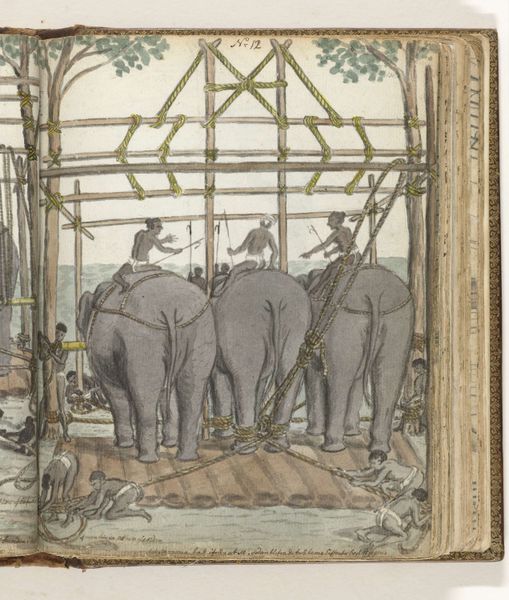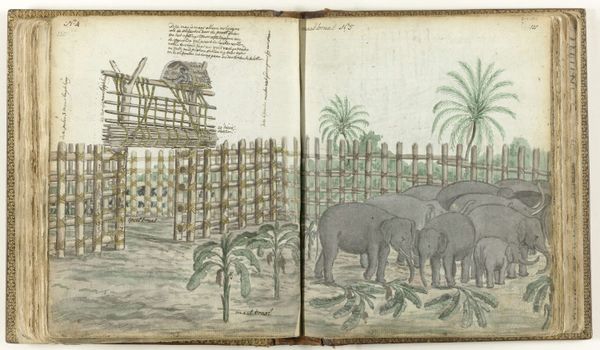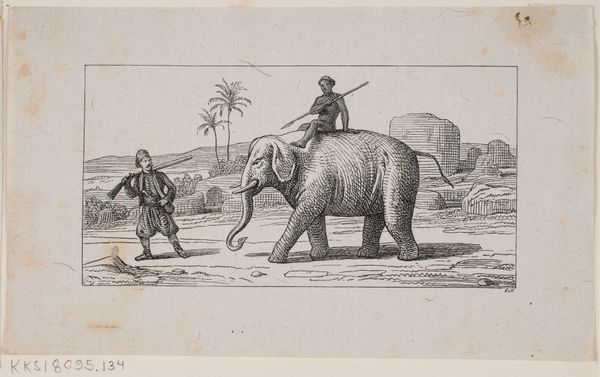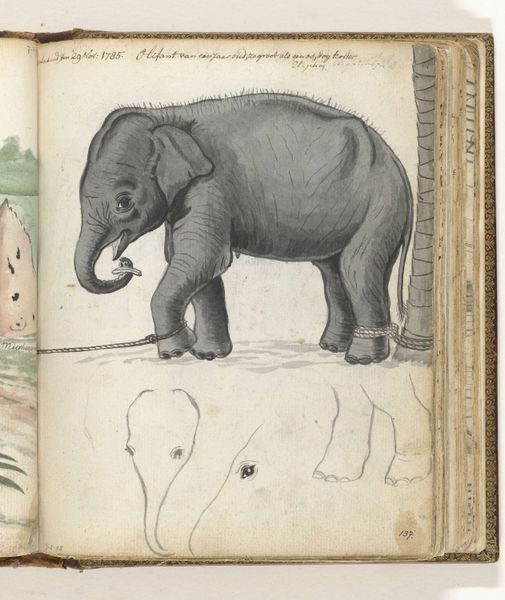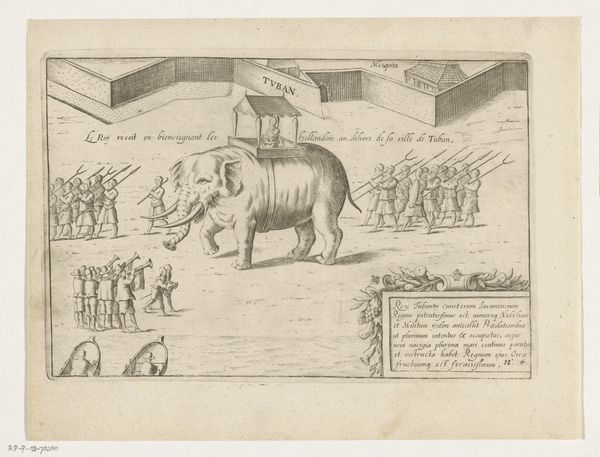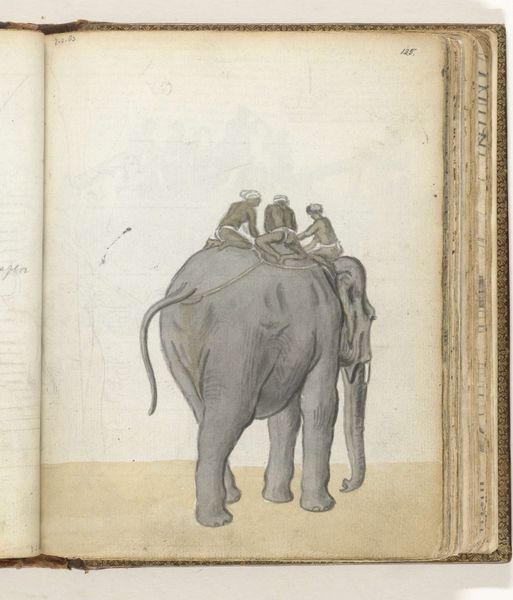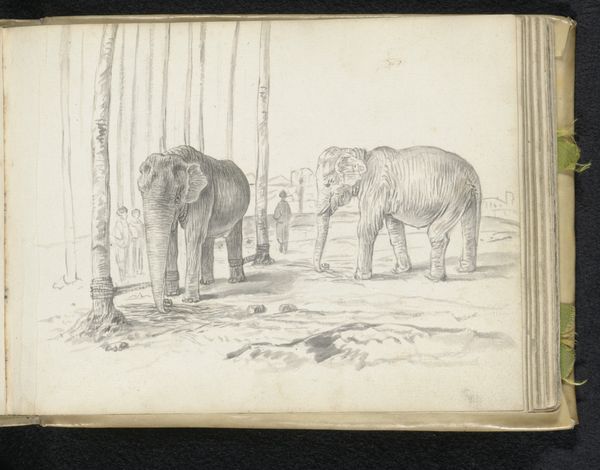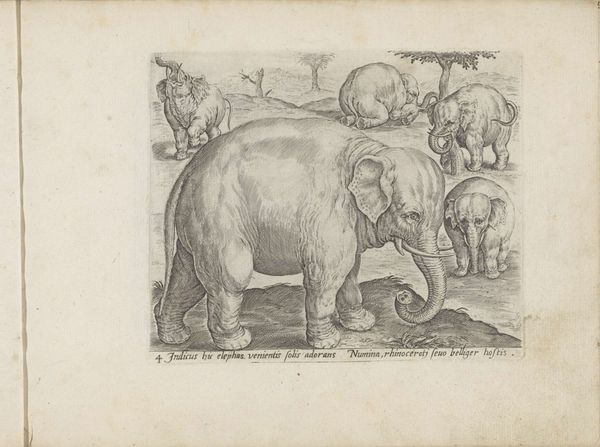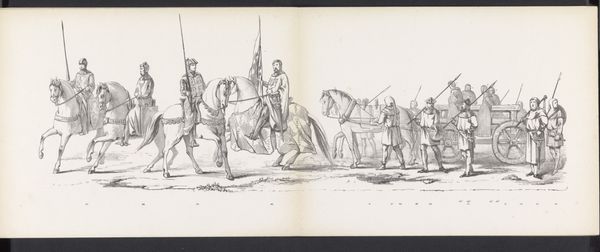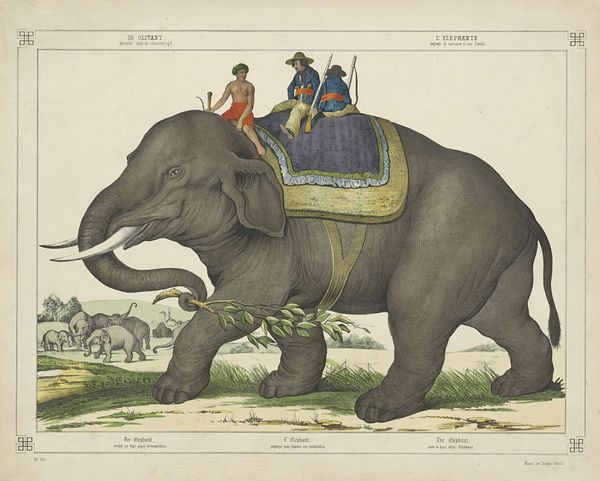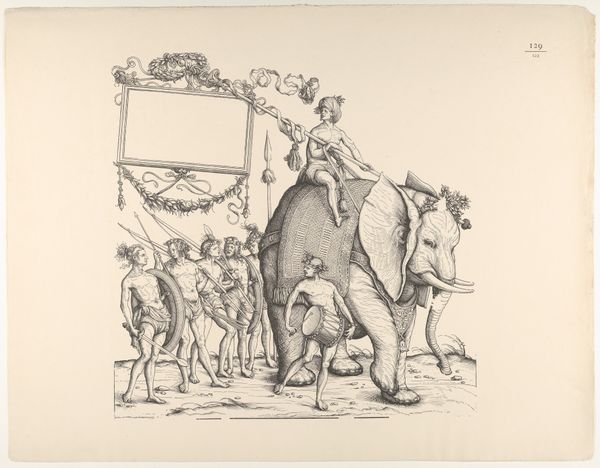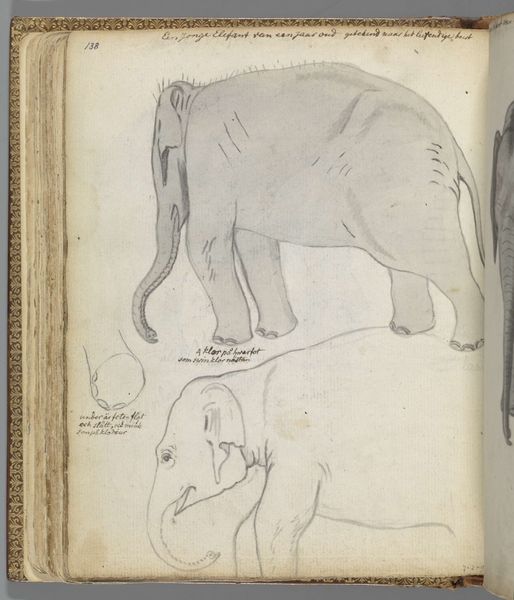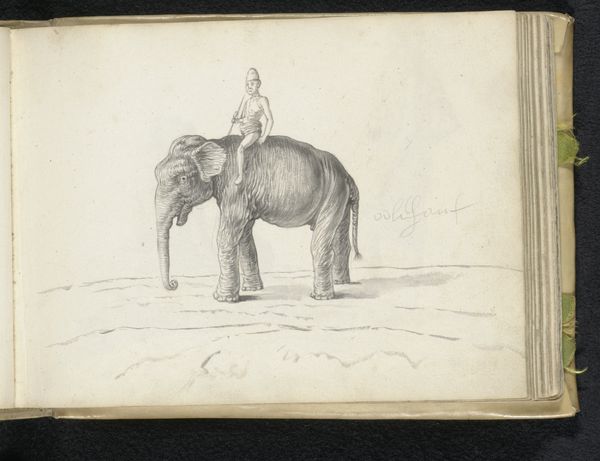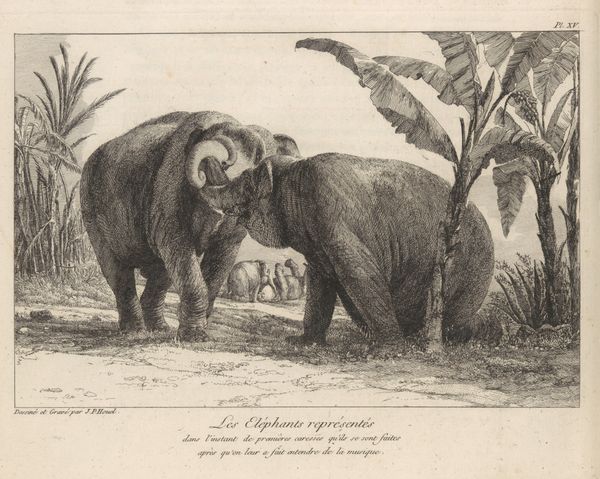
drawing, coloured-pencil, paper, watercolor
#
drawing
#
coloured-pencil
#
landscape
#
paper
#
watercolor
#
coloured pencil
#
orientalism
#
15_18th-century
#
watercolour illustration
#
genre-painting
#
watercolor
Dimensions: height 195 mm, width 155 mm
Copyright: Rijks Museum: Open Domain
Curator: Jan Brandes crafted this watercolor, colored-pencil, and ink drawing, titled "Inbinden van olifanten," around 1785. It offers a fascinating glimpse into historical encounters. What’s your first reaction to this piece? Editor: Well, immediately, the image feels crowded, almost overwhelming, yet there’s a peculiar calm emanating from the elephants themselves. They're central, yet their energy feels subdued in contrast to the flurry of activity around them. Curator: Indeed, this drawing exemplifies Orientalism, reflecting the 18th-century European fascination with and representation of the East. This depiction, however, also points to the violence inherent in colonialism through the act of binding or subduing these animals, perhaps a symbol of dominating cultures and people. Editor: It's quite chilling to view it through that lens. You’re so right; there's an implied power dynamic humming beneath the pretty colors and landscape style. The details—like the people perched atop the scaffolding and on the elephants, the ropes, all the tools…they’re constructing something beyond just physical restraint, aren't they? Curator: Exactly. The binding of these elephants mirrors broader systems of control and exploitation, highlighting power imbalances. Also, the drawing acts as a documentary record, capturing the methodologies and labor involved in the human and animal interactions within the era. It raises questions about knowledge gathering and how non-Western societies were viewed, assessed, and, at times, reshaped through the colonial gaze. Editor: Now, after considering your words, it seems like more than just observation; it's participation in the mindset of that era. We're drawn into their process, almost complicit through this meticulous rendering. But thanks to our analysis, this drawing serves as a chilling reminder of colonialism’s multilayered, manipulative, lasting effects. Curator: Agreed, contemplating Brandes' "Inbinden van olifanten" prompts a necessary and difficult reflection on the complexities of history and representation, its function in shaping our perception and what role it can play in contemporary, intersectional dialogues.
Comments
No comments
Be the first to comment and join the conversation on the ultimate creative platform.
